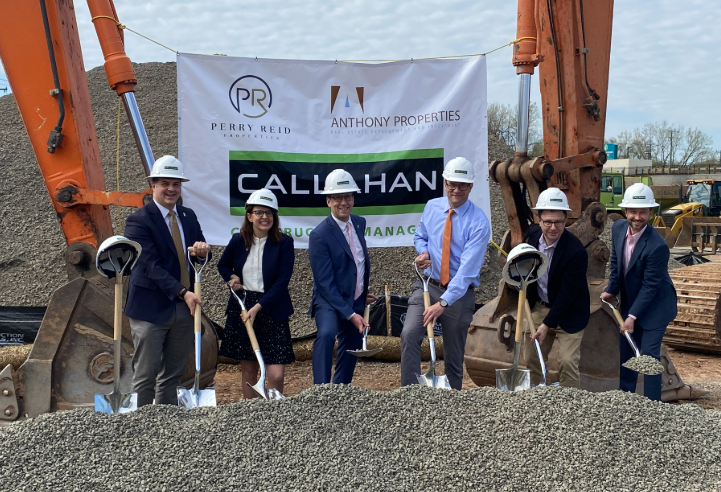News: Connecticut
Posted: April 15, 2009
Home Valuation Code of Conduct: Myths and Realities
As Fannie Mae states, the Home Valuation Code of Conduct (HVCC) was created "To help enhance the integrity of the home appraisal process in the mortgage finance industry", as it relates to lenders, mortgage brokers, and appraisers. Two of its primary goals are to promote appraiser independence, and increase appraisal excellence. The initial version which was met with a storm of protest from many sources, was recently revised, and as of this writing will be effective as of May 1, 2009. But has this effort fulfilled its promise, or will it actually lead to a lowering of appraisal quality?
The story begins with an action initiated by Andrew Cuomo, attorney general for the State of New York. Cuomo was conducting an investigation of Washington Mutual and its relationship with eAppraiseIT, which eventually involved Fannie Mae and Freddie Mac. In the end, the action was set aside when the parties involved signed an agreement in March 2008, resulting in the Home Value Code of Conduct, also referred to as "The Code".
The HVCC isn't a government regulation, but rather a privately negotiated set of policies promulgated by Fannie and Freddie. However, since Fannie and Freddie have a national base, the "deal" extends beyond just New York, affecting appraisers and lenders across the country. Eventually, the Office of Federal Housing Enterprise Oversight, in charge of regulating the two giant Government Sponsored Entities, signed the statement which granted it Federal Rule status. The Code is now ready for implementation for loans on 1 - 4 family properties originated on or after May 1, 2009, then delivered to Fannie Mae or Freddie Mac.
While the intent of The Code is noble, and seeks much needed reform, one section in particular proved most vexing among the appraisal community. The HVCC denies mortgage brokers the ability to order appraisals directly, thus negating many honest, long-standing business relationships formed between appraisers and brokers, seemingly pushing lenders toward Appraiser Management Companies when ordering appraisals. This perception fueled the fires of the argument that the HVCC will hurt rather than help the level of appraisal quality.
In an attempt to clarify many misconceptions about the final document, the Appraisal Institute has just released Home Valuation Code of Conduct, Myths and Realities. The following information is taken from the AI paper.
Myth: The HVCC requires lenders to use Appraiser Management Companies.
Reality: The use of AMCs is not required under the HVCC. Lenders may engage appraisers directly without the use of third parties.
Myth: Mortgage sellers cannot achieve HVCC compliance unless they outsource the appraisal function.
Reality: Sellers may achieve compliance by establishing meaningful risk management practices, including separation between appraisal-related processes and loan production areas. The Code requires that loan production staff not be involved in ordering the appraisal (which is already required under existing federal bank regulations).
Myth: "Loan Correspondents" or "correspondent lenders" are the same as mortgage brokers, and they too cannot order appraisals.
Reality: Unlike mortgage brokers, loan correspondents fund loans in their own name and, therefore, have "skin in the game". They are allowed to order appraisals for loans sold to Fannie and Freddie, just like other sellers that fund in their own name or use their own funds. It is true that mortgage brokers will no longer be able to engage real estate appraisers directly.
Myth: Sellers cannot maintain the appraisal function internally (e.g., an in-house appraisal department/operation) without loan production involvement.
Reality: There are several ways under the HVCC in which sellers may staff appraisal functions internally without outsourcing the function to a third party, so long as they maintain separation between risk management and loan production. Sellers should also ensure that their policies are in compliance with any relevant regulatory requirements.
Myth: Loan production staff is prohibited from communicating directly with appraisers.
Reality: Loan production staff may communicate with appraisers, as long as they are not involved with selecting, retaining, recommending, or influencing the selection of any appraiser.
Myth: Outsourcing appraisal management to a third-party reduces lender risk.
Reality: Federal bank regulatory agencies (including the OCC) have cautioned against reliance on third-party relationships by reaffirming that they may significantly increase a bank's risk profile, notably its lending strategies, reputation, compliance and transaction risks.
Myth: Use of third-party vendors ensures the use of competent appraisers.
Reality: Lenders have traditionally been responsible for ensuring they hire competent appraisers and for the reliability of the appraisals they use for credit decisions. However, the function of competency review is best performed by individuals with significant education in appraisal standards and theory. Further, lenders should consider any potential reductions in quality that might result from outsourcing the appraisal function. To this point, federal bank regulatory agencies recently reminded lending institutions to consider an appraiser's competency for any given appraisal assignment.
Myth: "Comp checks" - which are prohibited under the HVCC without an engaged appraisal assignment - are the only way to determine if there is sufficient value in the collateral prior to proceeding with a loan application.
Reality: Lenders don't want to proceed with doling out a certain amount without some idea that the collateral will support it. In the past, lenders and brokers would request the appraiser to complete what have become known as "comp checks" as a quick indication of value. The HVCC bars lenders from ordering these "checks" without fully engaging an appraiser in an appraisal assignment. Alternatively, the appraiser could be engaged in a consulting assignment to provide raw data to the client to help with their analysis.
These are but some of the confusing "hot-button" issues raised by the Home Valuation Code of Conduct. Whether the HVCC will commence as scheduled is questionable; that it will continue to produce contention is not.
Robert Moore is president of the Residential Division of Andrews & Galvin Appraisal Services, LLC, Farmington, Conn. and is an Associate Member of the A.I.
Tags:
Connecticut
MORE FROM Connecticut
Highcap Group brokers $41.1 million sale of two building multifamily portfolio
Norwalk, CT Highcap Group has completed the sale of two luxury multifamily properties with a total of 120 units for a combined purchase price of $41.4 million.

Quick Hits







